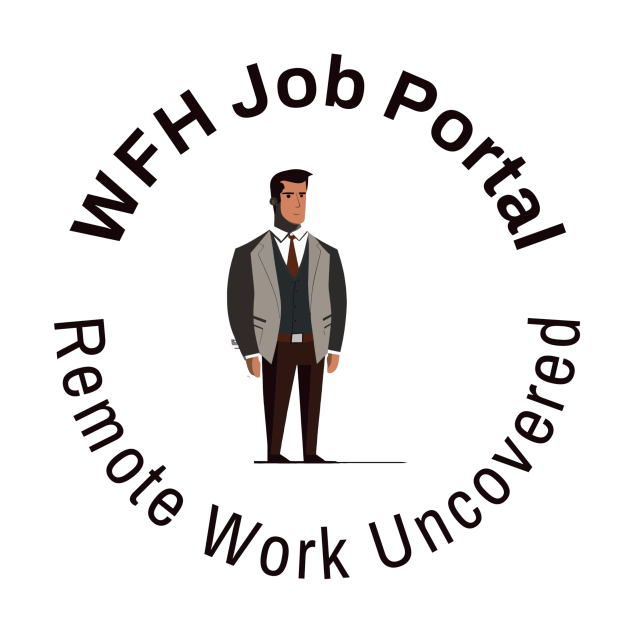Remote work since the COVID-19 pandemic of 2020 has steadily become more and more popular. Many who began working from home out of necessity never returned to the office because of flexibility and convenience. Now, after the pandemic, many are still desiring to work from home. There are so many people who have experienced working from home who have shared how the change has made their lives so much easier. However, what hardly anyone discusses are the challenges that they met. Understanding both the benefits and the potential drawbacks is essential for both employers and employees to be able to function effectively. In this article, we explore ten key issues that arise when working from home, providing insights into how to recognize and address these challenges for a more balanced and productive remote work experience.
- Isolation: Lack of social interaction with colleagues can lead to feelings of loneliness or isolation.
We, as human beings, are social creatures. Working from home sometimes does not provide much opportunity to interact with other human beings, especially jobs that require one to work in a quite work environment. Although one might interact with customers over the phone, the interaction is not the same as being physically around other people. Also, the nature of those types of jobs usually generates stress because of the negativity expressed by customers, which adds to the feeling of being disconnected from others.
- Distractions: Home environments often come with more distractions, like household chores or family members, which can impact productivity.
If your work-form-home job does not require you to be alone in a quite place, you may be bombarded by the distractions that go along with human interaction at home. In the workplace the majority of human interaction is related to the work environment. At home, however, the interactions are usually related to the home environment. Also, the home environment adds to the To-Do list. Chores that would normally be done outside of work hours, are now in the environment where you work. Depending on how well one can task-switch, these interruptions caused by others at home or chores that have to be done may cause one to lose focus on work.
- Work-Life Balance: It can be difficult to separate work from personal life, leading to blurred boundaries and potential burnout.
Focus can only be achieved if one has a good work-life balance. There needs to be a separation between work and personal life, not only for the purpose for efficiency, but also for the sake of sanity. Not having boundaries set can make one feel as though their entire life is a never-ending workday. In order to achieve this work-life balance, I recommend having a designated area for work, with designated work hours. Setting these boundaries will allow the necessary time for work and the necessary time for personal life, just as one would normally have when working outside of the house.
Communication Challenges: Remote work can create barriers to quick and effective communication, potentially leading to misunderstandings or delays.
In a traditional office environment, other workers are either in the next cubicle or in one of the offices down the hall, usually just a quick phone extension away. However, while working from home, your co-worker might be on the other side of the world. Without a specific communication system for co-workers, or for workers and clients, jobs may not be completed as quickly or may not be completed to meet the requirements for the job, especially if the job requirements change dynamically.
- Technical Issues: Dependence on home technology means that issues like slow internet or faulty equipment can disrupt work.
At a traditional office job, there are usually a group of people who handle all of the technical issues. At home, however, if any technical assistance is available, it would most likely be over the internet or over the phone, many times still requiring one to actually do the technical work by the instructions of the technician. But, what if the internet is down? What if the phone lines are out? What if there is no one to call and no one to help? Then one is responsible for doing the technical work. Working from home also means that one needs to become more technically savvy.
- Reduced Collaboration: Face-to-face collaboration can be more challenging, impacting creativity and teamwork.
Many who work from home usually communicate using telephones and/or video conferencing software. The problem with these methods of communication is the difficulty during collaboration. Video conferencing systems generally provide a way to share screens, so that on-screen documents can be reviewed by all participants, and some even allow for editing documents at the same time in a collaborative mode. However, there is always the concern of security when sharing and editing documents in this manner. Also, consider that not all documents are in digital format. Even when there is no security concern, and the documents are digital, the collaboration between individuals can possible miss out on certain nuances that are present in in-person group collaborations when trying to collaborate over video. In a video call, everyone is usually sitting in front of a video screen; however, in an in-person meeting, members can get up, walk around, express their views while using gestures that might not be possible sitting in a chair. These are all part of communication, and the absence of any communication technique that might normally be used in a meeting can affect the overall outcome.
- Lack of Supervision: Some people may struggle with motivation and accountability without direct supervision or regular check-ins.
At the office, one usually is directly supervised by someone in charge. Many people who work from home are the ones in charge, and even if they are not, the one in charge is usually not present. So, it becomes one’s responsibility to be self-motivated. One who is not self-motivated may find that tasks do not get done on time, and the overall workflow falls apart.
- Career Visibility: Being out of the office might impact your visibility and opportunities for networking or career advancement.
In a traditional office setting, those talks at the water cooler and interacting with others is a great way to network and get one’s name in front of other people who might one day be able to help push one a little further up the ladder of success. However, in a home work environment, those conversations and interactions at the water cooler don’t exist. Those possible resume references may only remember names on the screen, with very little bonding.
- Space Limitations: Not everyone has a dedicated home office space, which can lead to discomfort or inefficiency.
Previously it was mentioned that a designated area for working is necessary in order to help create a work-life balance and prevent burnout. But not everyone has that extra office space. Sometimes that office space is a corner of the bedroom. Sometimes that office space is shared with other people in the same room, which causes the problems with distractions that was mentioned previously. But, not having the extra space can also cause one to feel that the home is the workplace, and not just during work hours. Even when one is not working, because the same space is used for work, one still feels as though the workday is still going. This leads to feeling very uncomfortable in a space that would normally be used to be comfortable. For instance, if one uses a bedroom as an office, it may become difficult to sleep at night, because one would appear to still be at work while still in bed. So, having a the extra space is important, but unfortunately not always available.
- Health Concerns: Prolonged periods of sitting and reduced physical activity can have negative effects on physical health.
Again, in a traditional office, even when working at a desk all day, one would normally need to get up to take a folder to a co-worker, or stop by accounting to fill out a form, or walk somewhere to do some necessary task. At home, the nature of working at the computer at home generally requires that all of those tasks be done from the computer. Instead of taking a folder to a co-worker, one would send the folder via email. Instead of stopping by accounting, accounting might send the file via email to be digitally signed and returned via email. Needless to say, there is very little walking involved, and a lot of sitting and typing hunched over a keyboard. The posture that one uses, especially when one becomes really focused on the work, is usually a posture that is harmful to the body. Soon, one might begin to feel upper and lower back pain, numbness of the legs, or aching wrists from the repetitive motion of typing on the keyboard and clicking a mouse for hours without doing anything else. So, it is advisable that when the workday is planned out that stretching and exercising breaks are included in the plan. Not having one can be a pain in the neck.
Conclusion
While working from home definitely has its benefits, it is essential to be aware of the potential drawbacks that can impact productivity and well-being.



